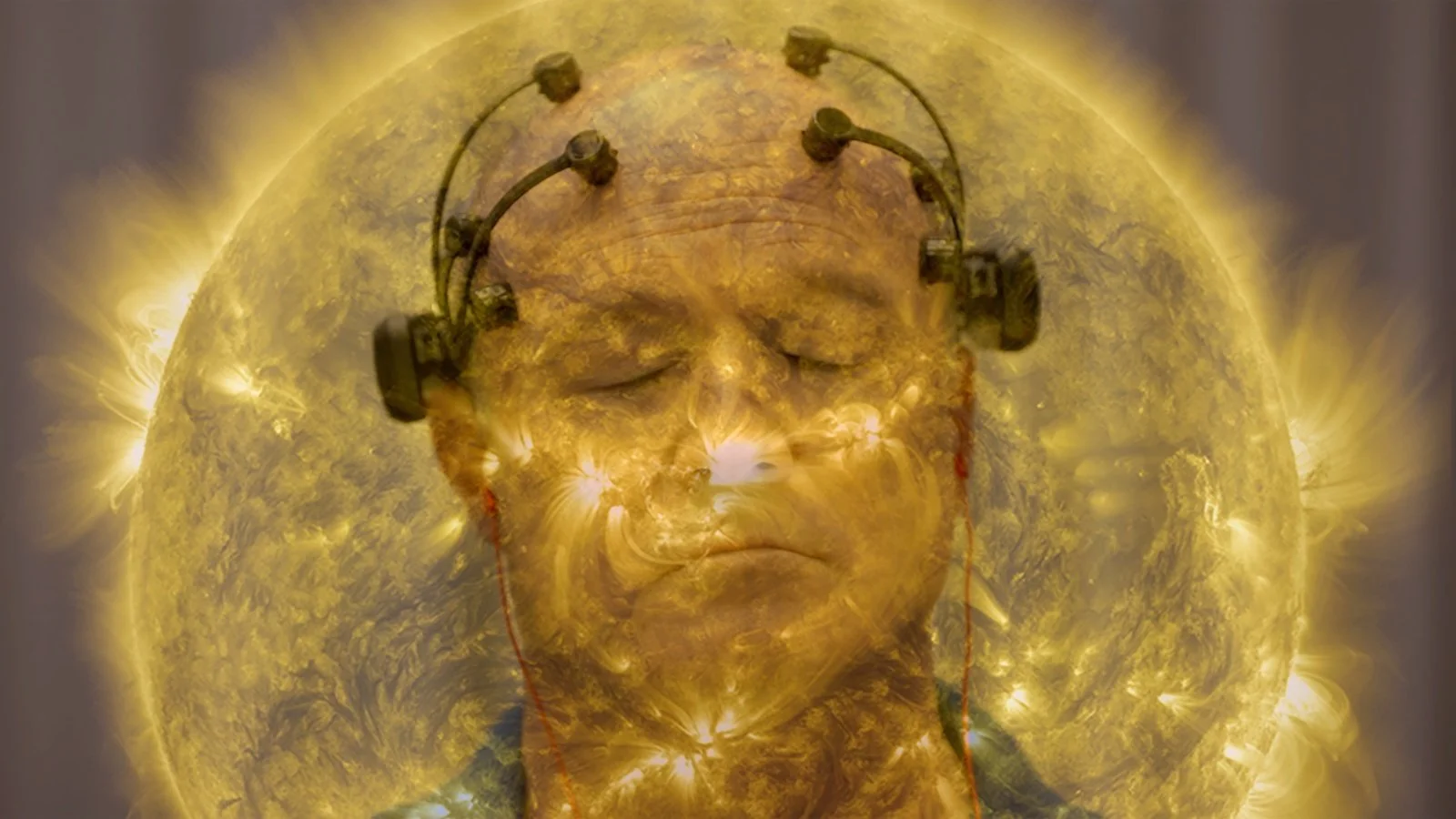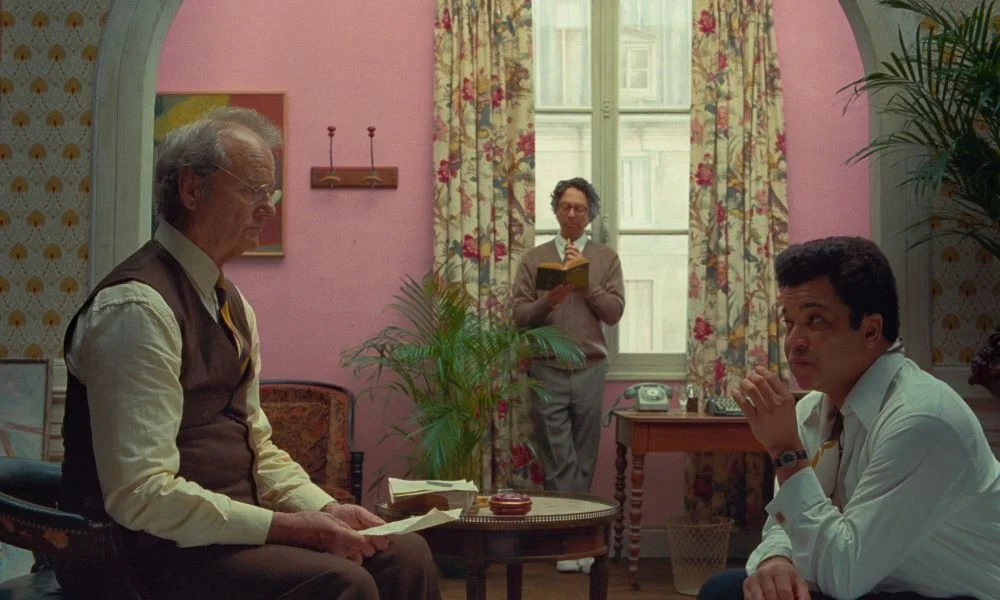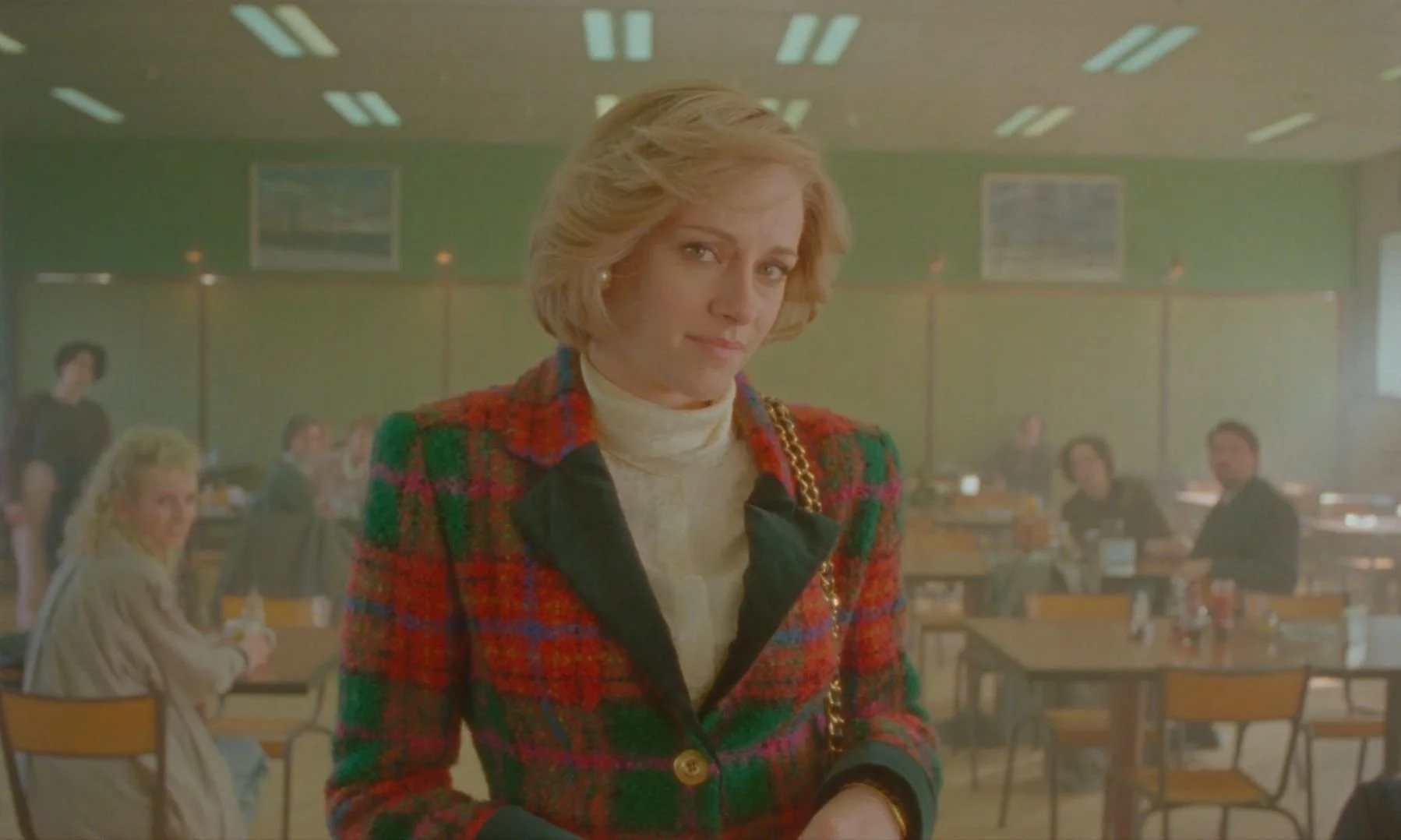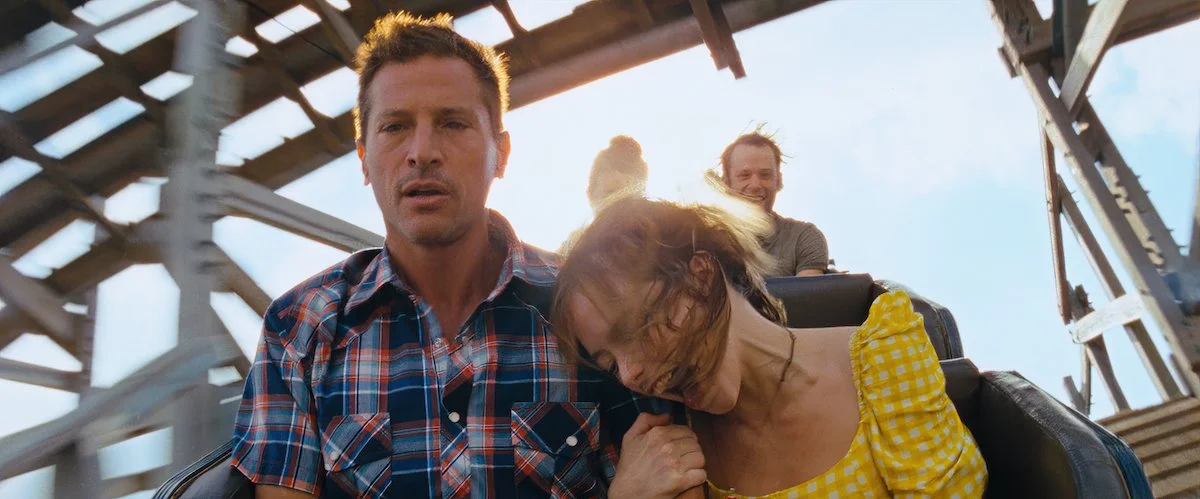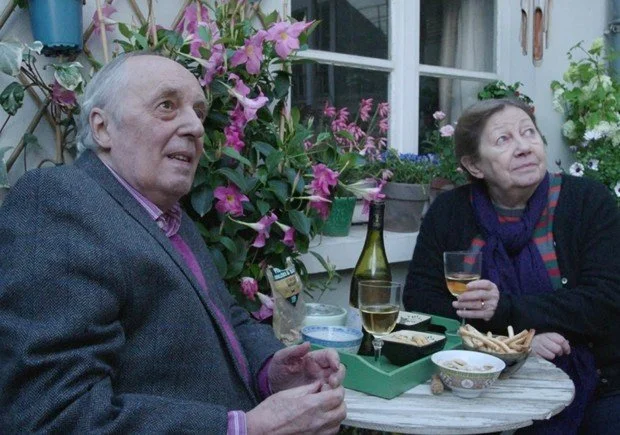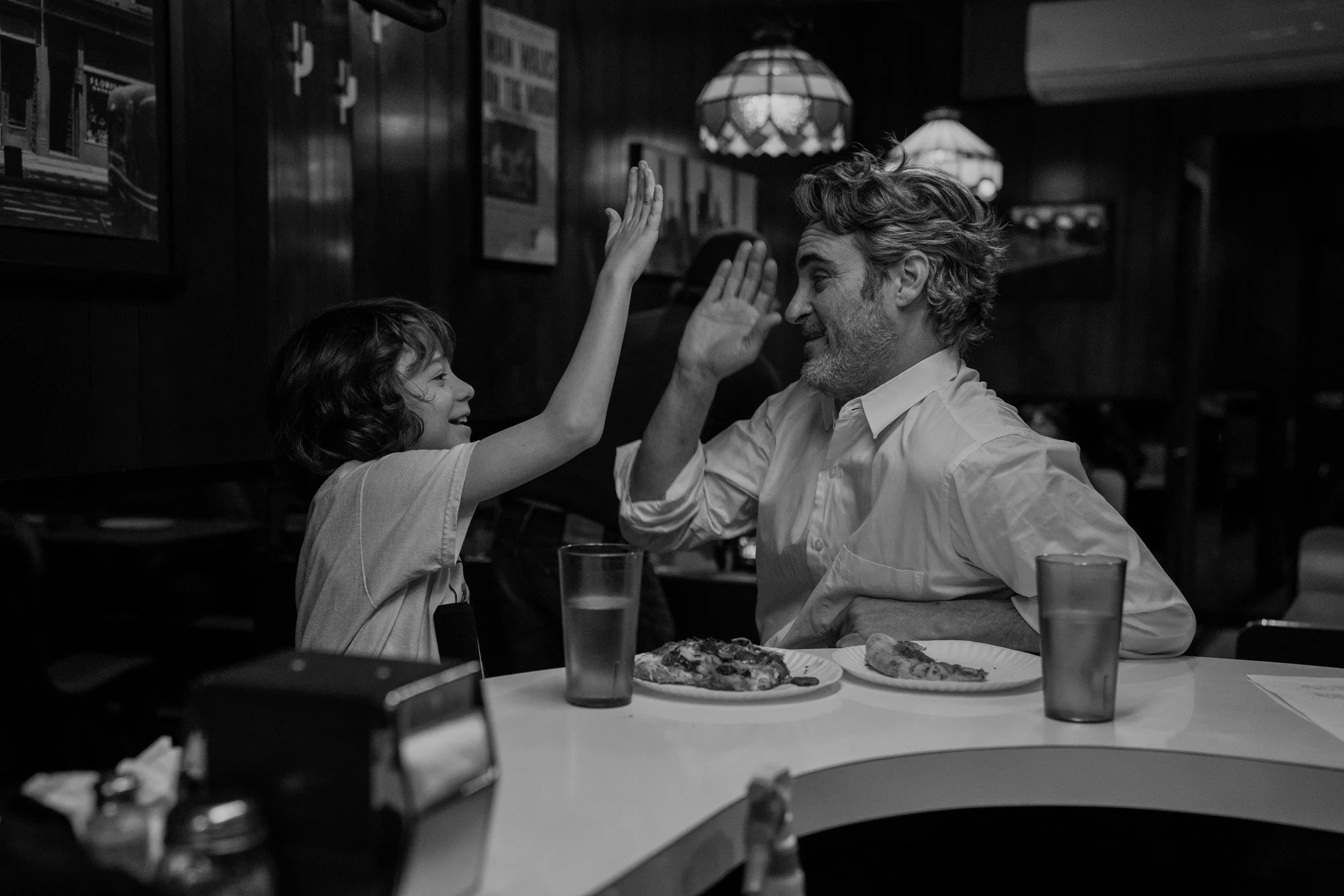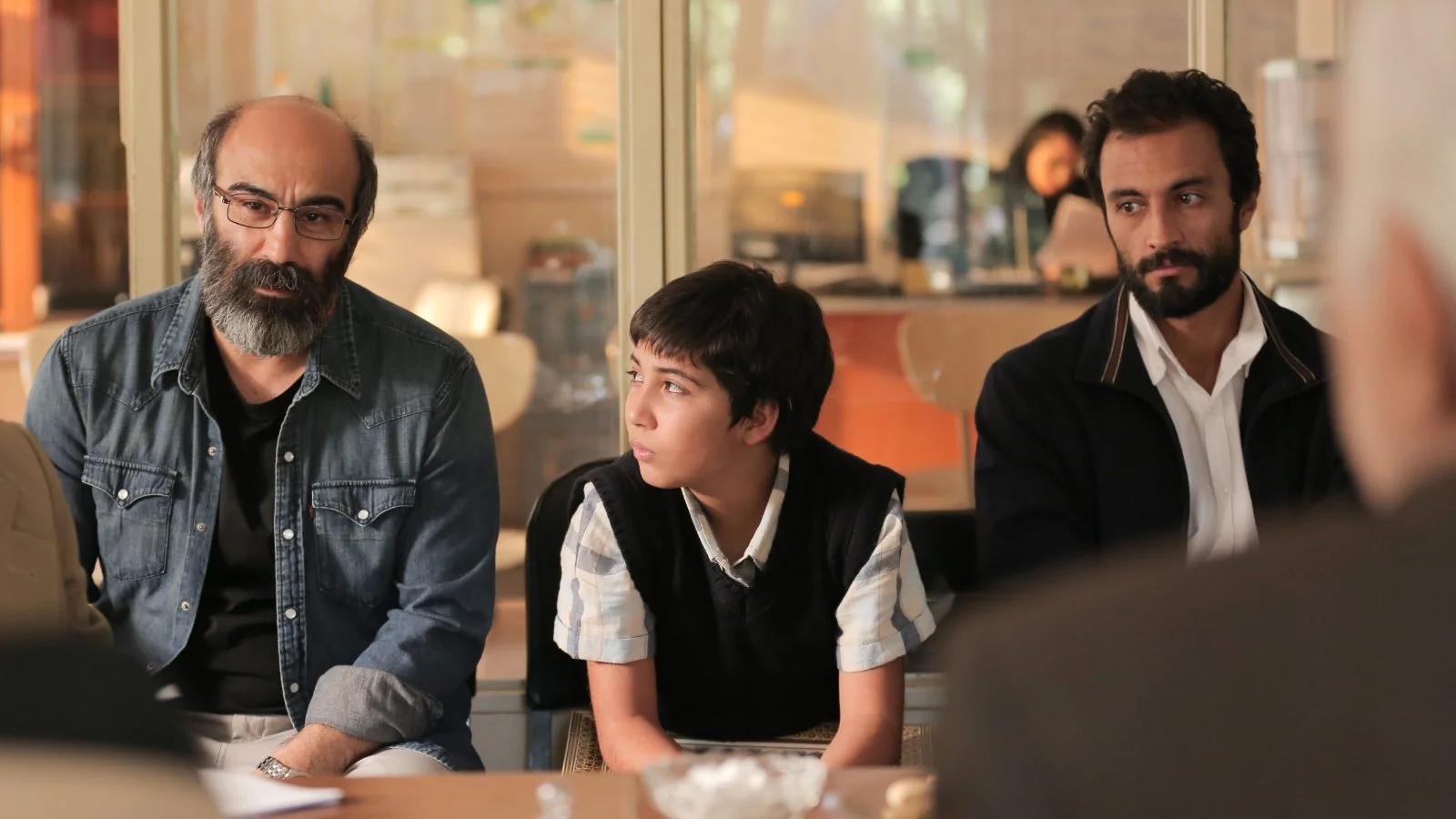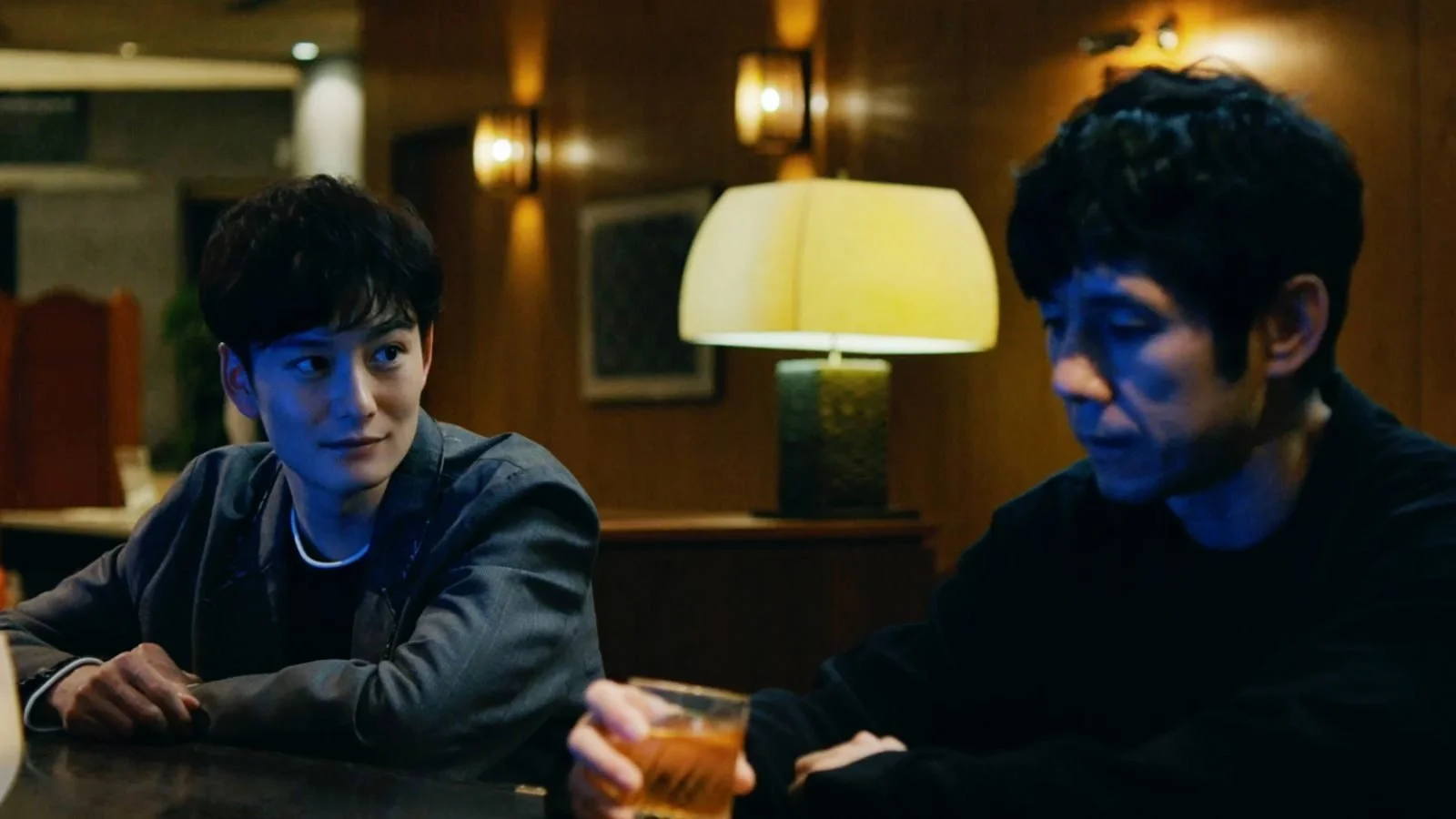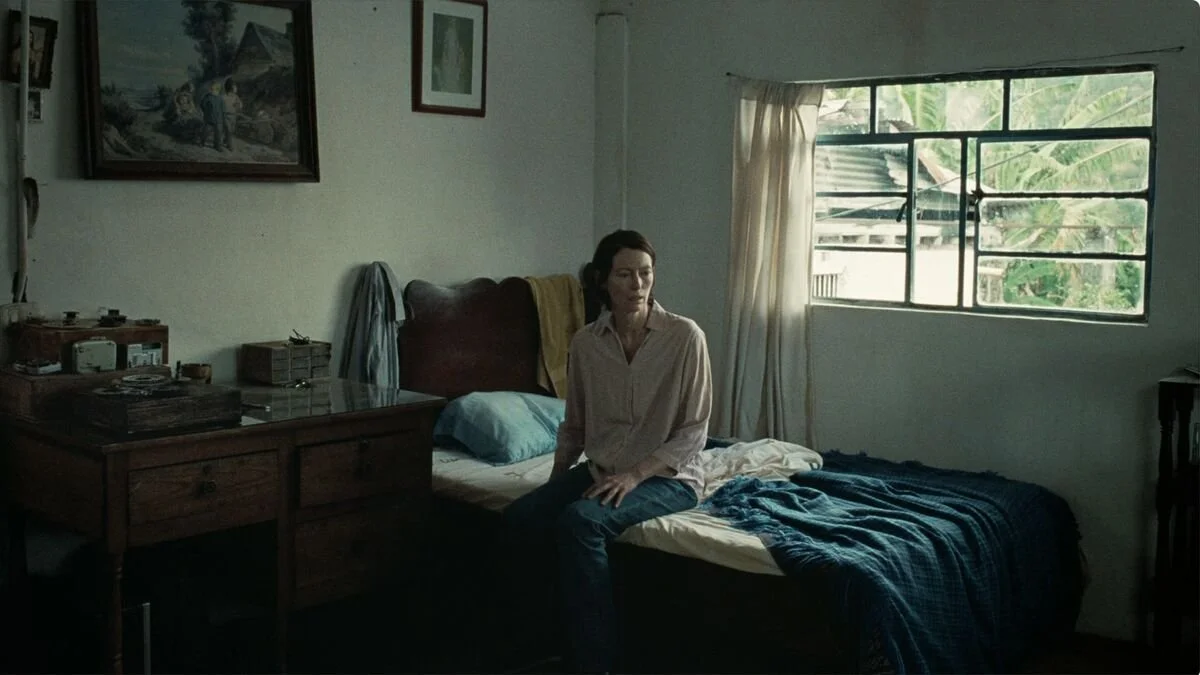The Best Films of 2021
10. ALL LIGHT, EVERYWHERE
Another fascinating essay film from Theo Anthony. Like all his work, rich in how it connects and juxtaposes ideas in both poetic and pointed ways. Evoking the works of Marker, Farocki, Foucault— offering more esoteric thoughts on vision and light, documentation and digital interpretation, surveillance, body cam implementation. First asking: How well can we understand through sight? Can we trust our own senses to observe a true reality? Later becoming: How can we trust the body camera as an objective witness? Can we understand through a lens owned by those controlling the narrative? It neatly ties these ideas together, tracking the evolution of the camera and moving image ( like Marey's motion studies, or Galton's criminal taxonomy) to the contemporary world of AI, facial recognition, police body cameras, and aerial surveillance and their modern day application and weaponization. Ultimately reckoning with the current day commodification and commercialization of data collection, crime deterrence, and citizen surveillance.
All Light considers the role of technologies in determining how we see (and don't see), the fact that we build machines to represent the world in specific ways and then use the information provided by those machines to prove -- often in a court of law -- that the world corresponds to what we were already looking for. It presents all of this corporate propaganda as is, trusting the viewers intelligence to question its veracity. Simultaneously poetic and radical, beautiful and challenging, and my pick for the best documentary of the year.
9. TITANE
Completely bold, original, unafraid to be exactly what it is, which is only part of what’s so exciting and invigorating about Julia Ducournau’s sophmore feature Titane. A visceral, experience shifting film that again exemplifies her strength with body horror & the grotesque. Elevated by virtuoso camerawork and sharp lighting and coloring throughout. Filled with personality & tonal shifts, and led by two strong, varied performances. Agathe Rousselle delivers in a sneakily challenging role that is both physical and demanding, and even somewhat transformational. Vincent Lindon, though, may be the true standout as my favorite supporting performance of the year, he has such incredible presence and effortless command playing this wounded, complex and charismatic part.
The kind of film to shake up the normalcy of film viewing, and challenge watchers to brace its grizzlier aspects the same way life will challenge you, to reach through and find the soulful connections that come with otherness, with trauma, with whatever it might be. It’s an experience wholly unique and it winning the Palm d’Or at Cannes is cause for celebration.
8. THE FRENCH DISPATCH
Wes Andersons loving, ornate ode to The New Yorker was the last film I saw at Cannes and also one of his best. The melding of material to filmmaker is pitch perfect, as Andersons eye for detail, organization, and unexpected heart bonds perfectly to the the wry, trend setting, ‘in the know” sensibilities that both the publication, and his films carry. Many of his films can feel novelistic, if The Royal Tenenbaums tragicomic nature unfolds chapter by chapter, then The French Dispatch similarly binds its structure to that of an issue of the acclaimed publication. And perhaps the greatest feat of the script is just how well the various anthology stories are captured in the voice of the writer, both in the voiceover orations that permeate each section, but also in each’s filmic approach. Wether a loving satire of the modern art world, a tribute to the student protests of late 1960’s France (as well as French New Wave) or of a human interest write up which , with beautiful interest and specificity, starts as a culinary story before becoming a textbook “Andersonian” madcap chase. Each portion is told with the unique voice and point of view of each of the entries writers from the namesake “French Dispatch” publication.
As you’d expect the cinematography, framing and blocking are all staggeringly well realized, but the films various sections allow for so much more variety and versatility. Because of its different stories, tones, and voices; the film is able to shift from crips black and white to pointed use of splashes of color — from patiently framed, locked down wides to energetic shifting animated action. A film that gives a loving hug to the writers of the world, and to the strength and heart that can come from putting words to a page. Something about this films attempt at containing and contemplating, the rich and various nuances of life harkens back to Andersons own filmography. Trying to surmise and make sense of the various intricacies of life without betraying the inherent messiness and unknowability feels like an Anderson hallmark, and this film weaponizes it expertly. But even more so, his well established symmetrical style, visual exactitude, and varied cultural reference points imbue the work with that much more soul and specificity. You’re likely to have a favorite story, wether due to the plot, the shots, or the tone of voice , each a love letter to esteemed writers of The New Yorker, but no matter where you may land — it would be difficult to not acknowledge the incredible cast of actors and performances, the creativity, the set design and period detail, and most of all the power that putting words to a page can hold.
7. SPENCER
Chilean Director Pablo Larrain has made a bit of a name himself as the unofficial (and unadorned except by me) master of the unconventional biopic. No’s telling of tenuous social politics and activism amidst Pinochet’s dictatorship, Neruda’s fascinating balance of depiction vs invention in telling his impeachment and pursuit, or Jackie’s deep soulful exploration of the American icon myth making. His work should offer a clear indication of what was likely going to be in aim with his latest work, Spencer. A deep, personal portrayal of a historical figure, set against a tumultuous period in their lives. Spencer is unique, however, in its singular vision as an offering of an act of empathy, and understanding, willing to be bold in its notions and incisive in its critiques. Kristen Stewart delivers one of the best performances of the year, offering a fully realized and manically charged Princess Diana worthy of the lofty ambitions.
Though the entire crew involved deserves deep praise, beyond Larrain’s surehand and Stewarts excellent performance. Claire Mathon shows why she’s one of our great cinematographers today with the hazy, haunting look for this nightmarish stay at the manor. A unique, sharp looking aesthetic flourish that rewards the ideas working in the material. The score from Greenwood is the best of the year, the lurid jazz tone pieces throughout accent the manic worried shifts of the film perfectly. The supporting cast is strong, the period detail and costume design feels effortless and stylish. A bit surprised by the lack of award love for the film, but it’s strong critical consensus signify to me the resounding power found in its hushed and manic haze.
6. RED ROCKET
Red Rocket was one of the big surprises out of Cannes, of course not due to the Director Sean Baker, who has been working with the indie-film scene for over a decade now and most recently broke through with his films ‘Tangerine’ and ‘The Florida Project’. More so this film was in Official Competition for the Palm d’Or at Cannes. The film follows a male pornstar failing downwards, returning to his town empty handed after what seems like an arduous journey. He goes back to the home of his ex-wife and mother-in-law as a place to crash til he gets back on his feet— and expectedly, him doing so proves to be difficult and complicated. Til he finds a young local girl who he thinks will be a new star in the industry with him and will be his ticket out of there (pretty much literally") Doesn’t exactly sound like the stuffy suits at Cannes would typically go for, but its bakers eye for regional specificity and characters that bring this film to life. His willingness to shoot what many would consider unglamorous or “trashy” and find these forgotten little corners of Americana that go typically unrepresented.
Incredible casting and weaponized use of Simon Rex, who’s crazed energy, brand of comedy and true dramatic acting chops makes for one of the grimiest, funniest, and entertaining characters to watch of the year. Sean Baker has proven to have a real gift working with non-professional actors to great effect, and the way he blends actors and non-actors feels effortless to him. The wide cast of characters that create the backdrop of this film bring a rich, regional specificity and are the vehicle for displaying and inspecting the class issues layered into the story. Baker employs crisp use of the grainy 16mm film stock, teaming up with DoP and Trey Edward Schults frequenter Drew Daniels, they pair nicely providing the perfect look for the sun baked, paint chipped, sprawling rustic Texas town. The funniest movie of the year, and also one of the best.
5. VORTEX
Noe manages to shock yet again with his latest, but not in the way you’d think. Gone here are the grotesquely entertaining provocations of I Stand Alone, the dizzying and harrowing elliptical exercise of Irreversible, or the virtuoso cataclysm dance horror nightmare that is Climax. Vortex is quiet, and still, and mannerly in much of its approach; fair to compare to Haneke’s Amour. And while not as excellent, as few films are, Noe finds an intricate balance in both the tone and the approach to the material. The film is simultaneously quiet and empathetic, claustrophobic and sickly, heartbreaking and hilarious, simple yet formally inventive. Incredible use of split screen throughout the entire feature in a way I don’t think I’ve ever seen before. The juxtaposition of the imagery and rhythms of the editing converge neatly and are employed to great effect throughout. It’s no easy feat to be able to shoot essentially double the footage for your film and ensuring the story and editing will all coincide properly. His continued work with one of the greatest working cinematographers Benoit Debie proves to be a perfect fit for the task.
Led by three heartbreaking performances, Dario Argento was terrific and surprised me with his performance in non-native French. Francoise Lebrun has quietly and consistently been terrific throughout her career and delivers once again. But my favorite performance also feels like the most unsung and that’s the actor that played their son, Alex Lutz. Who gave one of my favorite supporting performances of the year. I really connected with his struggle through his aging parents and his feelings of doubt, insecurity — not knowing what direction to go in life. He achieves the feelings of a kind, dutiful son who struggles with addictions and uncertainty and that lost whimpering energy carries through in his performance strongly. This soulful, empathetic exploration of aging and of what life often looks like in its last days, would still have been devastating on its own. But with the added context that Noe suffered from a brain hemorrhage that was deemed to have less than 55% chance of survival, and less than 15% chance that he would not suffer some from of brain damage. Which is what led to him making this quiet, personal film. I should also add for full disclosure that I was lucky enough to get to see this film at its world premiere at the Cannes International Film Festival. I was in the room, not more than 50 feet from Noe (of whom I am a massive fan if that’s not clear) along with these three incredible actors (and director hah). Sharing that moment, being in that room with him, as he was clearly emotional at the standing ovation he was receiving for a film that is very different from his other work felt incredibly special. Frankly one of my favorite moments I’ve ever gotten to experience and I can’t pretend that all this didn’t effect my appreciation of the work. Really excited for more people to see this one.
4. C’MON C’MON
3. A HERO
2. DRIVE MY CAR
Another incredibly rich text, so much so the entire conception of the film revolves around our understanding of it. "Yield yourself to the text and respond" so says our lead, played incredibly by Hidetoshi Nishijima in the best male performance of the year. There's an old adage, that may be a bit tired, but it goes that a good actor cries but a great actor fights back tears, and this is a masterclass in that exercise from our lead for almost the entire 3 hour runtime until its devastating release towards the end. Director Ryuske Hamaguchi has become a bit of a breakout star from his strong showing this year with this and his other feature Wheel of Fortune and Fantasy and he is deserving of the spotlight. Between this years entries along with Happy Hour and Asako I & II, he has carved out his lane as a unique voice in cinema. With shades of Rohmer and Cassavetes, there's a quiet texture to his melodrama that still carries that independent spirit. Which makes him an incredibly apt fit for adapting the work of Murakami into film, which has proven to be hit or miss in the past. With efforts like Lee Chang-Dong's Burning (incredible) or Norwegian Wood (not good!)
MEMORIA
A meditative, evocative, symbolically rich text on the mysteries of existence and the universe; identity and recollection; humanity and the reverberations we both feel and leave behind. A haunting, existential quality, expressed in hushed and oblique tones, is also driven by a particular part of the soundscape that serves as the main thrust of the film. Joe’s sure hand guides in these moments of quiet and stillness, nobody captures humans invasion of nature quite like he does. Which fits neatly into some of the (many) ideas packed into its second half. Tilda’s distinctive presence is a perfect marriage of material to performer; holding these moments of repose together with her physicality and layered gaze. The continued collaboration with Mukdeeprom here is once again sublime, making beautiful use of the frame and its emptiness expressly. With lots of long, locked down wides capturing both the lush, and the barren, sharply on Cooke anamorphics.
And while this film is inline with Joe’s slow burn lyricism, it’s not an experience devoid of personality nor is it monotonous or listless. I’m particularly reminded of a dinner scene early on that illustrates the film’s driving force tensely, or a certain jazz quartet we get to see (that absolutely whips) as well, which are just two of many enigmatic choices throughout. The historical and existential anxieties, the out-of-placedness of the first half, are both deepened and recontextualized as the film progresses and expertly dissipates into its own particular brand of introspection and malaise. Which, when paired with Joe’s trademark realist mysticism, provides an experience that is wholly unique, fully engrossing, and richly interpretable.
This movie has been cooked into my brain tissue ever since seeing it months ago. The best film at Cannes, the best film of the year.

